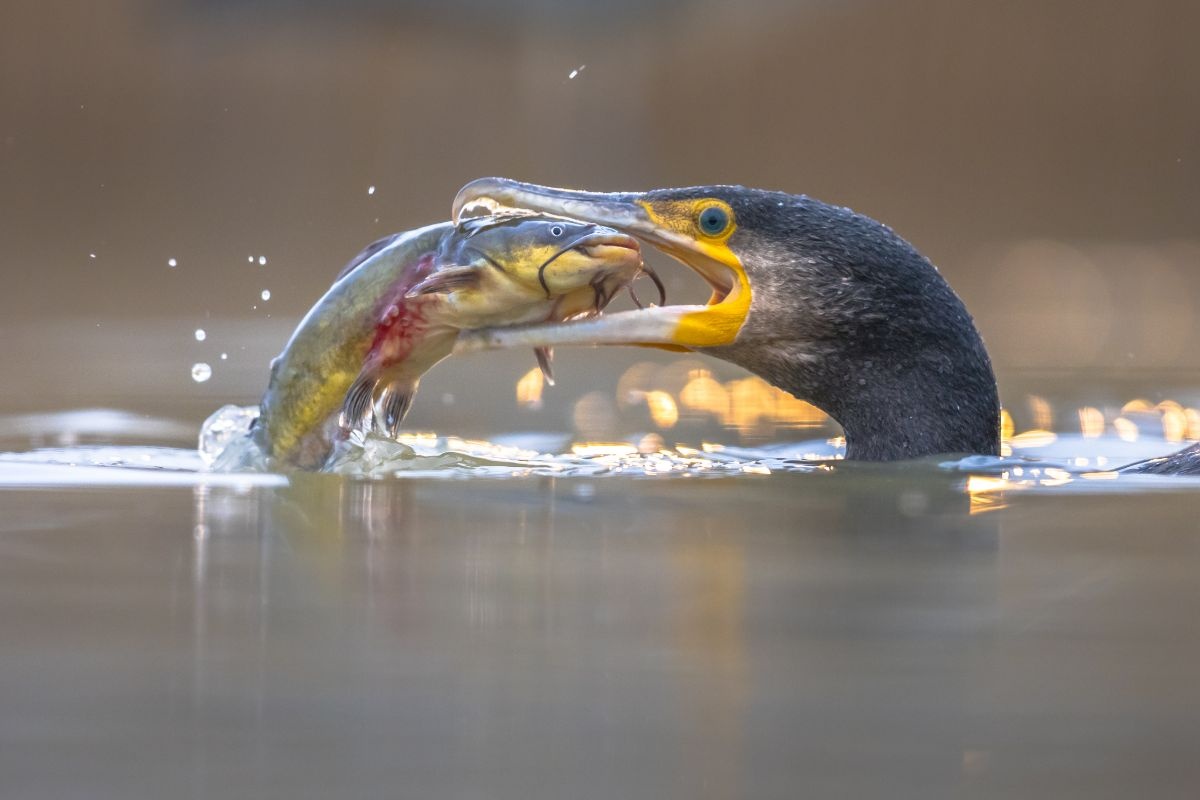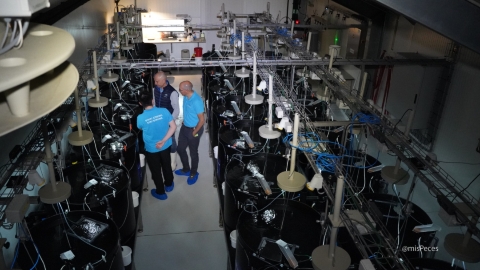
The Andalusian Aquaculture Technological Centre (CTAQUA), in Spain, under the Blue Shuttle project, has announced a call for the development of an Unmanned Ground Vehicle (UGV) equipped with cutting-edge technology to tackle one of aquaculture’s most pressing challenge in esteros (wetland areas): managing the great cormorant. This announcement is part of a broader initiative to integrate digital solutions into the blue bioeconomy, specifically across the European Atlantic area.
This UGV will include deterrent tools such as green lasers and ultrasonic, specifically designed to target cormorant without impacting other species or the ecosystem. The increasing presence of cormorant in aquaculture zones is not only a local issue but also a widespread problem across Europe, significantly affecting the productivity and sustainability of these practices.
The call is open to small and medio-sized enterprises, starups, technology and innovation centres, as well as universities and research institutes from Ireland, France, Spain, and Portugal, all part of the Atlantic area. Projects should aim to develop a scalable solution that can be adapted by other companies within the sector facing similar issues.
Beyond solving a critical industry problem, the project offers an opportunity to demonstrate how digital technology can be effectively applied to enhance both environmental and economic management in aquaculture. The selected provider will not only develop the prototype but will also participate in funded pilot tests and benefit from mentorship session by Blue Shuttle partners.
The selection process will evaluate proposals based on technological innovation, effectiveness, economic viability, and environmental sustainability. Participants will retain intellectual property rights of their developments, sharing co-ownership with CTAQUA for any innovations arising from the project.
Funding for the project is capped at 15,000 euros (excluding VAT) and the development period must not exceed 12 months, from award to final delivery of the prototype, which will include real-world testing in an aquaculture setting in the province of Cádiz. Payments will be distributed in three instalments: 40% initially, 30% following the interim report, and 30% upon completion.
More information:


